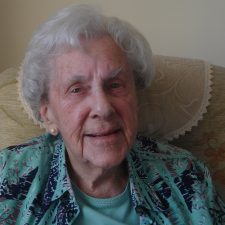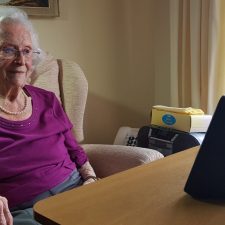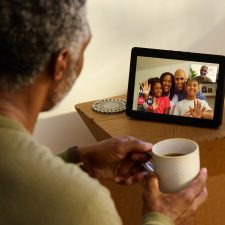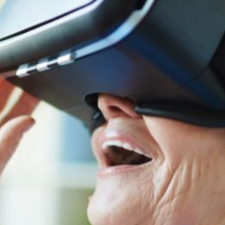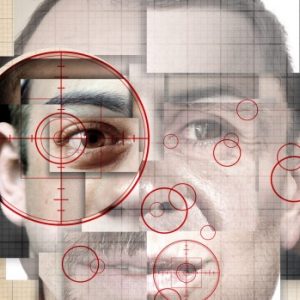Virtual Reality (VR) is quickly making its presence known in every sector of society. One of the most vital impacts of VR is on the medical industry. VR has already taken a big step into medical training and will be a needed tool to teach and train medical students.
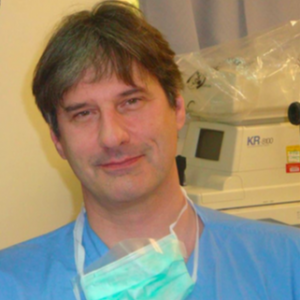 As Dr. Dominic McHugh, who is a highly respected Ophthalmic Surgeon in London believes the importance of VR in the medicine industry is evident and explains:
As Dr. Dominic McHugh, who is a highly respected Ophthalmic Surgeon in London believes the importance of VR in the medicine industry is evident and explains:
“Medical education involves demonstration by senior doctors and observation by students and junior doctors. VR will literally bring a new dimension to teaching, with observers now being able to immerse themselves in, for example, an operating room during surgery, or a consultation with a patient.” He also adds that “These can also be experienced from anywhere in the world at any time, so will no longer be confined to the privileged elites of top universities.”
2017 will see the renowned VR and AR production company, Infinite360 mark the historic release of the world’s most advanced virtual reality medical institution, in collaboration with King’s College Hospital to develop virtual reality, medical education application. This revolutionary educational resource will provide unrivalled access to an expansive archive of lectures, surgeries, operations, interactive experiences and live-broadcasts from the world’s leading medical and surgical professionals. VR is the optimal platform to learn more rapidly, as Dr. Narendra Kini, CEO at Miami Children’s Health System stated, “The level of understanding through VR is great because humans are primarily visual and VR is a visual format.”
VR SURGICAL TRAINING
Virtual reality has the ability to stimulate immersive and very detailed artificial environments making it ideal for surgical training. Through the utilisation of 360° film capture, Infinite360° will be able to make operating room observations more transparent and convenient for student doctors. This revelation will assist student doctors will be able to observe surgical procedures in a controlled environment and be fully engaged without any risk of interruptions or uncertainty. Having 20 students in one surgery is simply not efficient or viable. Teaching in VR 360° will allow those same students to be present at the same time watching the same operation, without becoming a risk. This will completely revolutionize medical training for the better.
A HUMAN ANATOMY SOURCE
This will be a more engaging way for the student doctors to visualize and understand all the 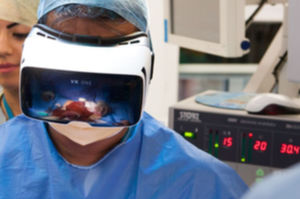 different parts of the anatomy from a realistic and captivating perspective. Additionally the student doctors will be able to see what happens inside the human body when certain diseases, disorders and complications occur.
different parts of the anatomy from a realistic and captivating perspective. Additionally the student doctors will be able to see what happens inside the human body when certain diseases, disorders and complications occur.
As an impressive educational source, Infinite360° will in high quality CGI breakdown the human anatomy, by using Virtual Reality and augmented reality (AR) to accurately present what someone’s internal organs may look like based on their lifestyle or illness. AR promises to change the medical industry in a significant way. Not only can it assist medical staff but it also offers help to patients, providing additional information on their medication and condition.
Students can video a human body in AR and intimately observe areas to learn more about a specific part of the body. Using AR for medical training provides obvious benefits, as mistakes are not detrimental to a subject, it carries zero risk. It can help patients gain a better understanding of a procedure they are about to undergo, by explaining exactly what is going to happen and how their body will recover.
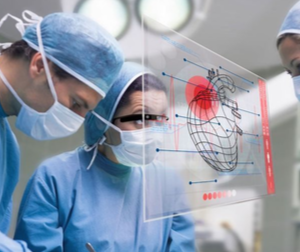 However when Dr. Dominic McHugh was asked if certain professionals in the industry will reject the use of VR, he said, “There will always be colleagues who feel happy to carry on with their tried-and-tested methods and that is fair enough: Technology alone will never substitute an experienced and charismatic teacher.” However he also added, “Although VR is no replacement for good teaching I believe that it will be a great tool to enhance the teaching experience, particularly for students and doctors from the many developing countries I have met who don’t have the opportunity to travel personally to hospitals abroad.”
However when Dr. Dominic McHugh was asked if certain professionals in the industry will reject the use of VR, he said, “There will always be colleagues who feel happy to carry on with their tried-and-tested methods and that is fair enough: Technology alone will never substitute an experienced and charismatic teacher.” However he also added, “Although VR is no replacement for good teaching I believe that it will be a great tool to enhance the teaching experience, particularly for students and doctors from the many developing countries I have met who don’t have the opportunity to travel personally to hospitals abroad.”
As more and more innovative educators and VR developers collaborate, the application of virtual reality in medical training is becoming more comprehensive and sophisticated and Infinite360 and King’s College Hospital will implement their joint vision. In short, this virtual reality medical institution will serve aspiring students and industry professionals from all levels, including (but not limited to): developing countries, universities, and leading hospitals. Infinite360’s and King’s College Hospital virtual reality application will be available worldwide on all major mobile application platforms (iOS, Android, Oculus, Daydream).
Dori DeLuca
Tags: Health

 Share On Facebook
Share On Facebook Tweet It
Tweet It


